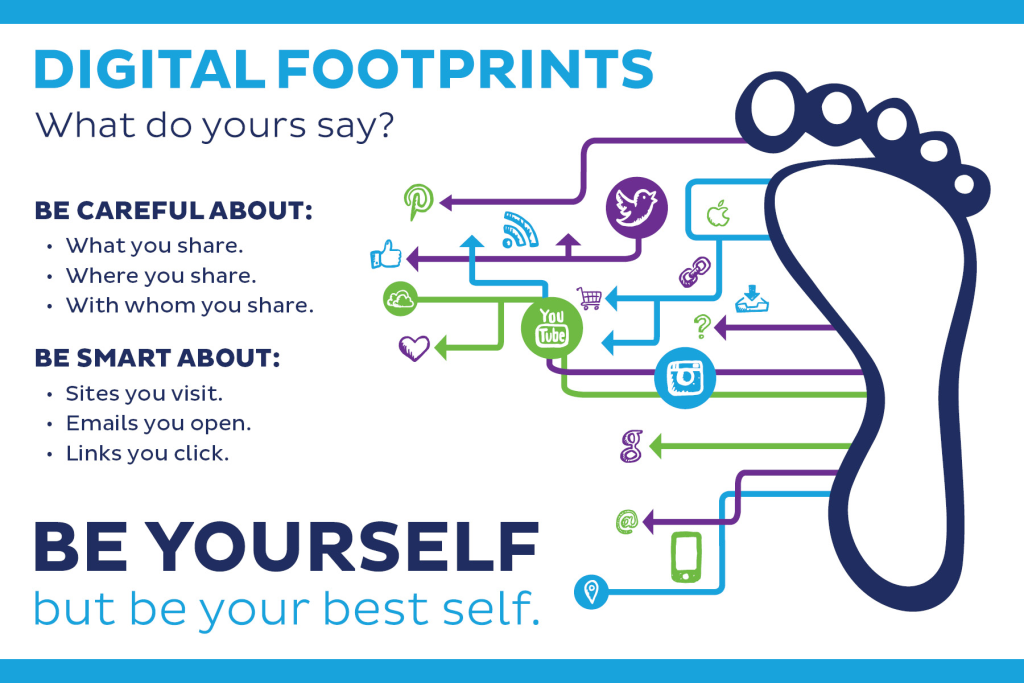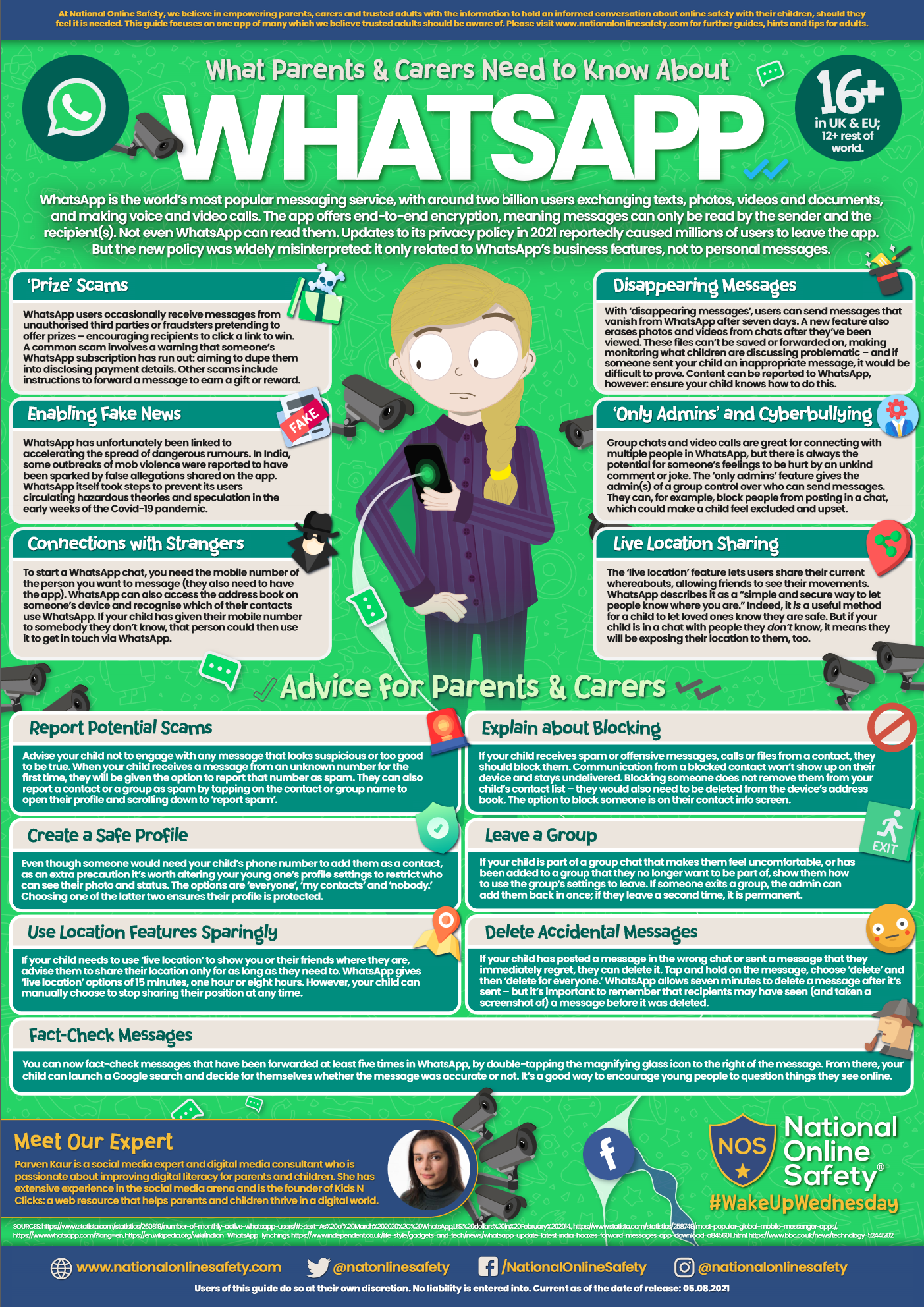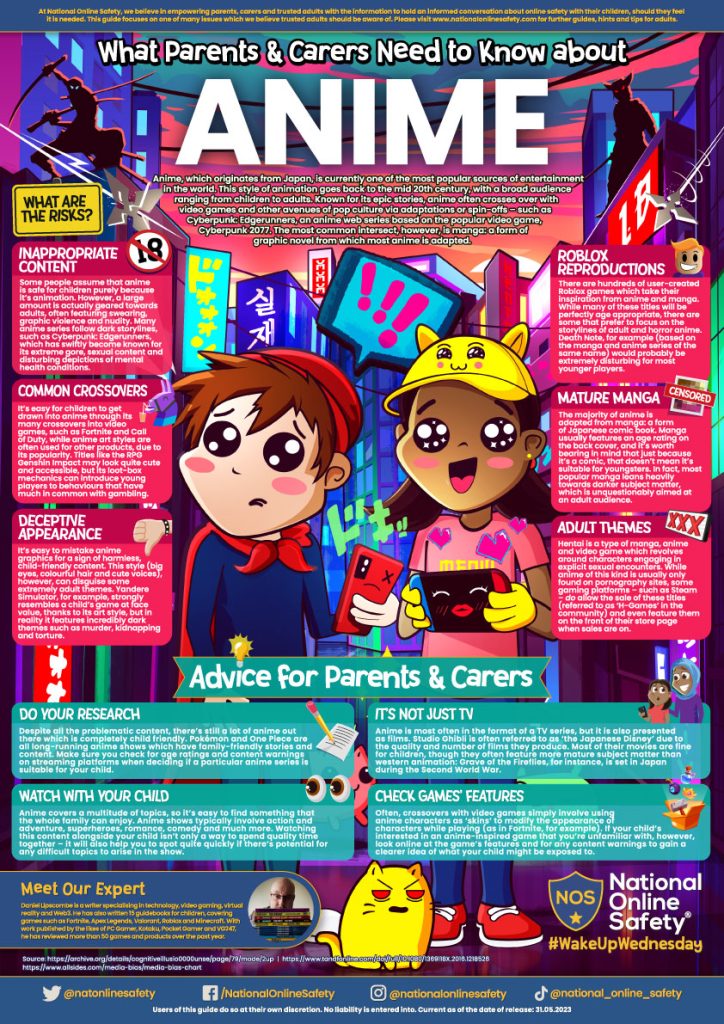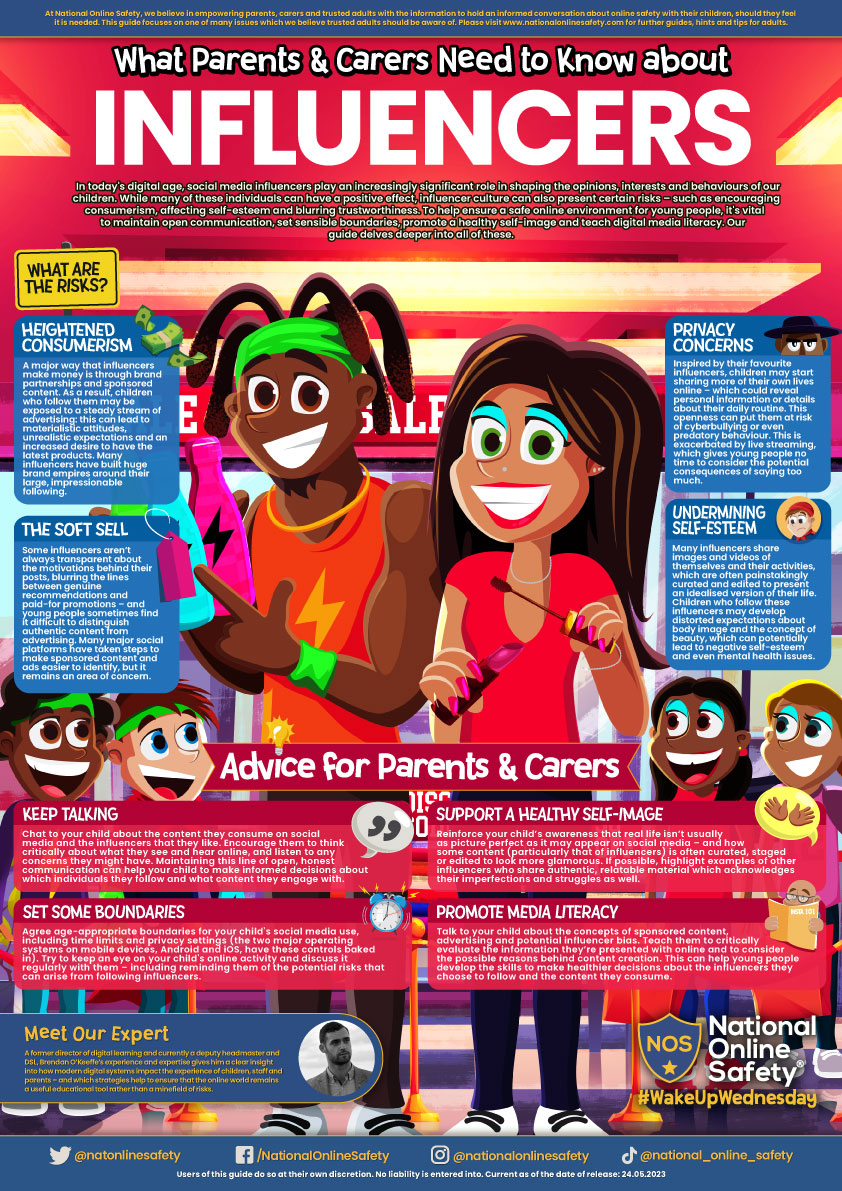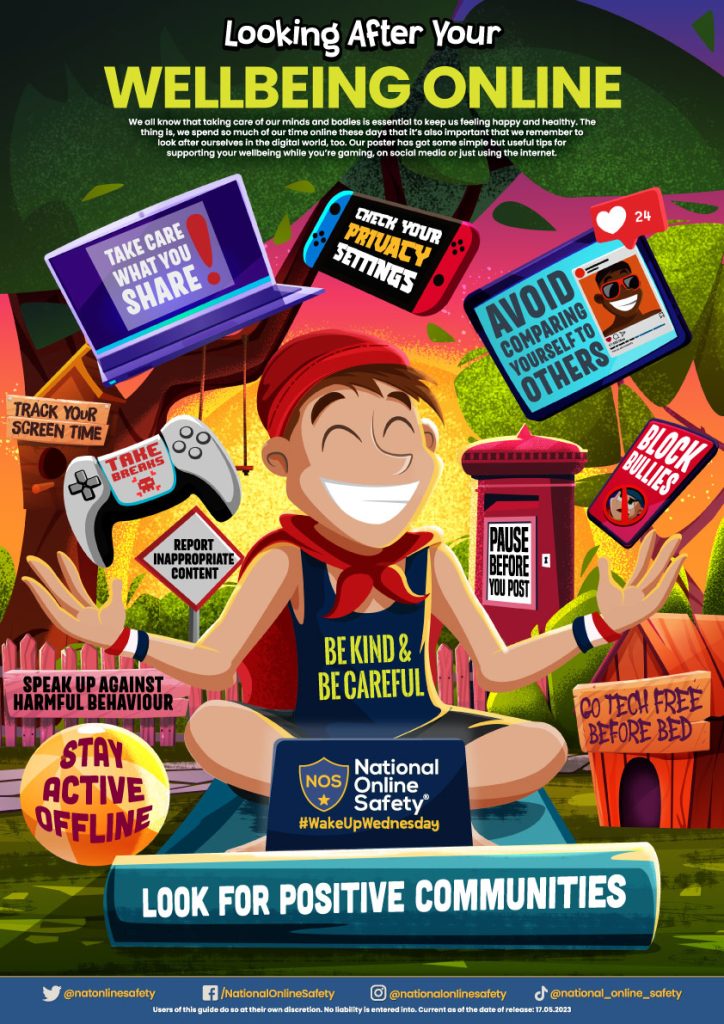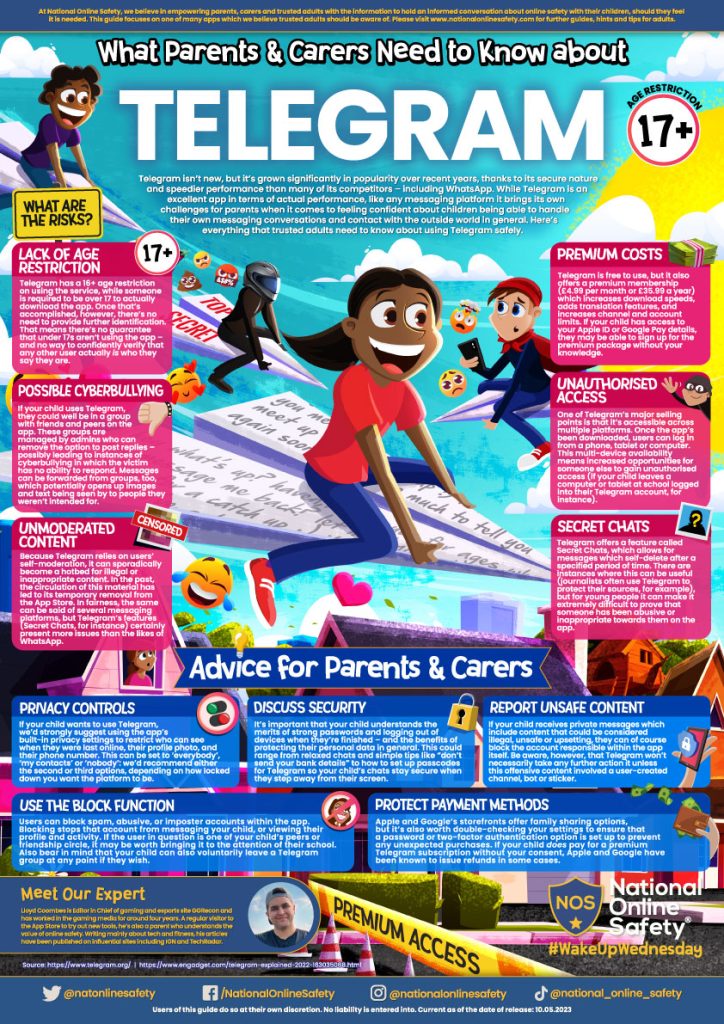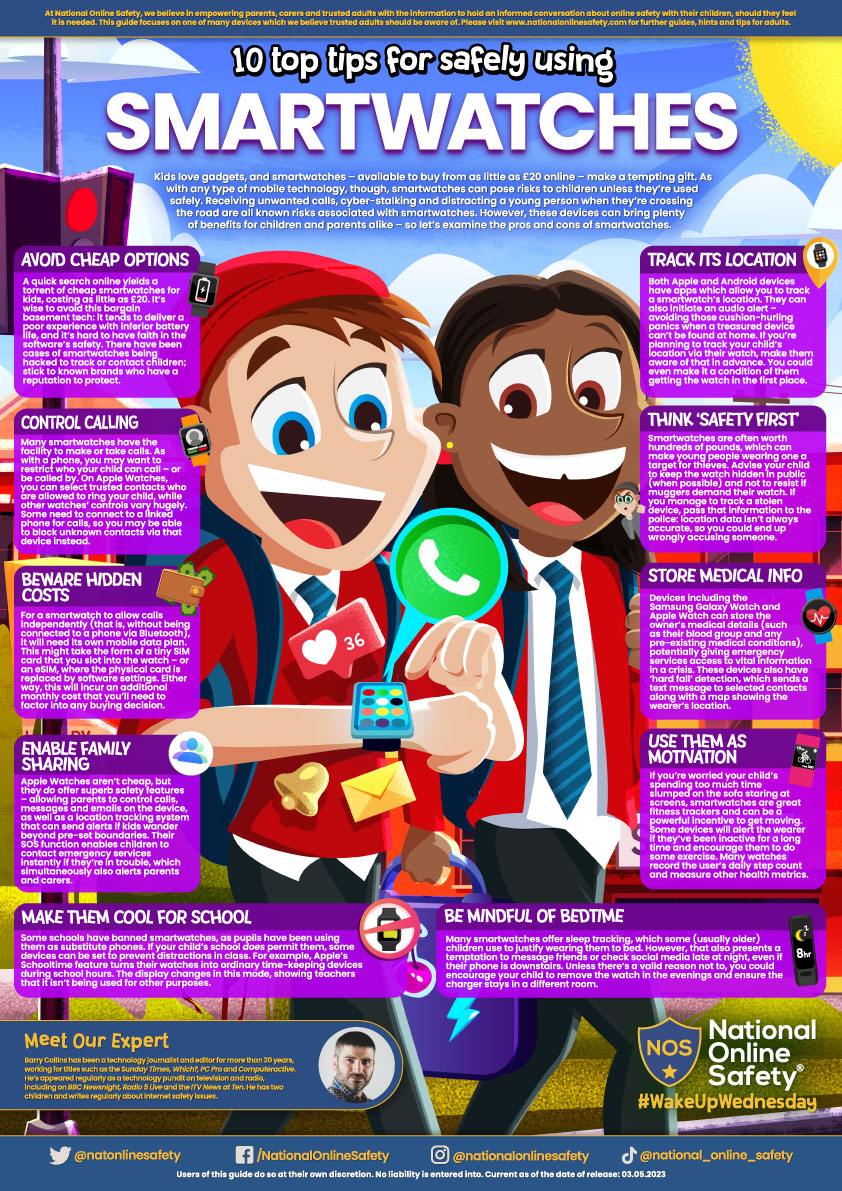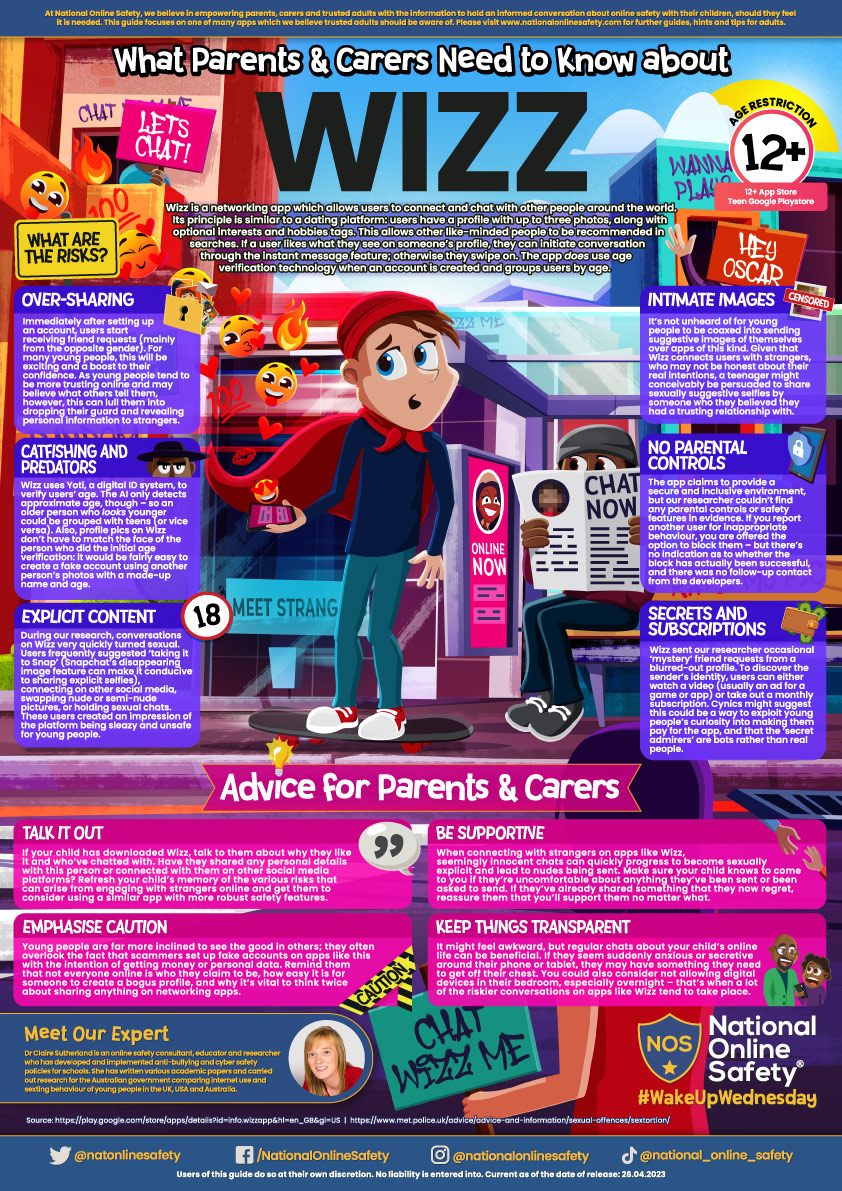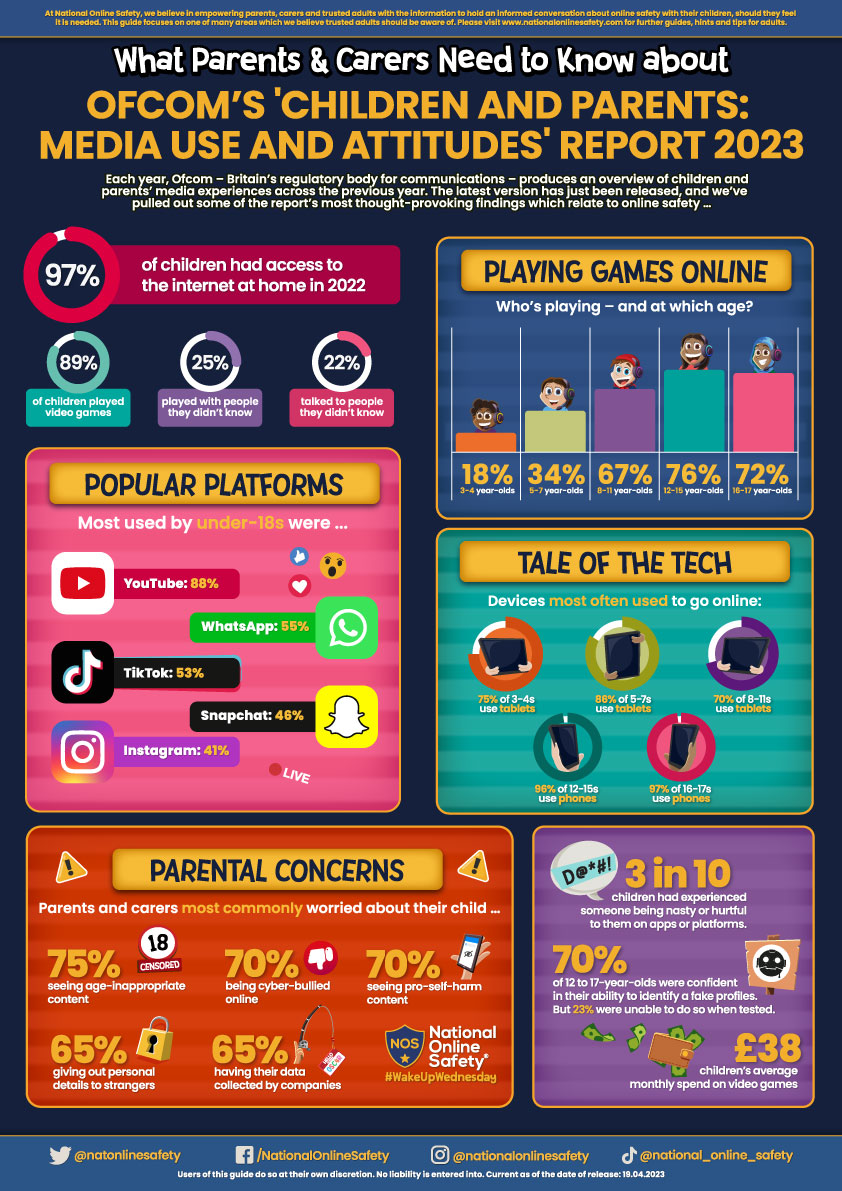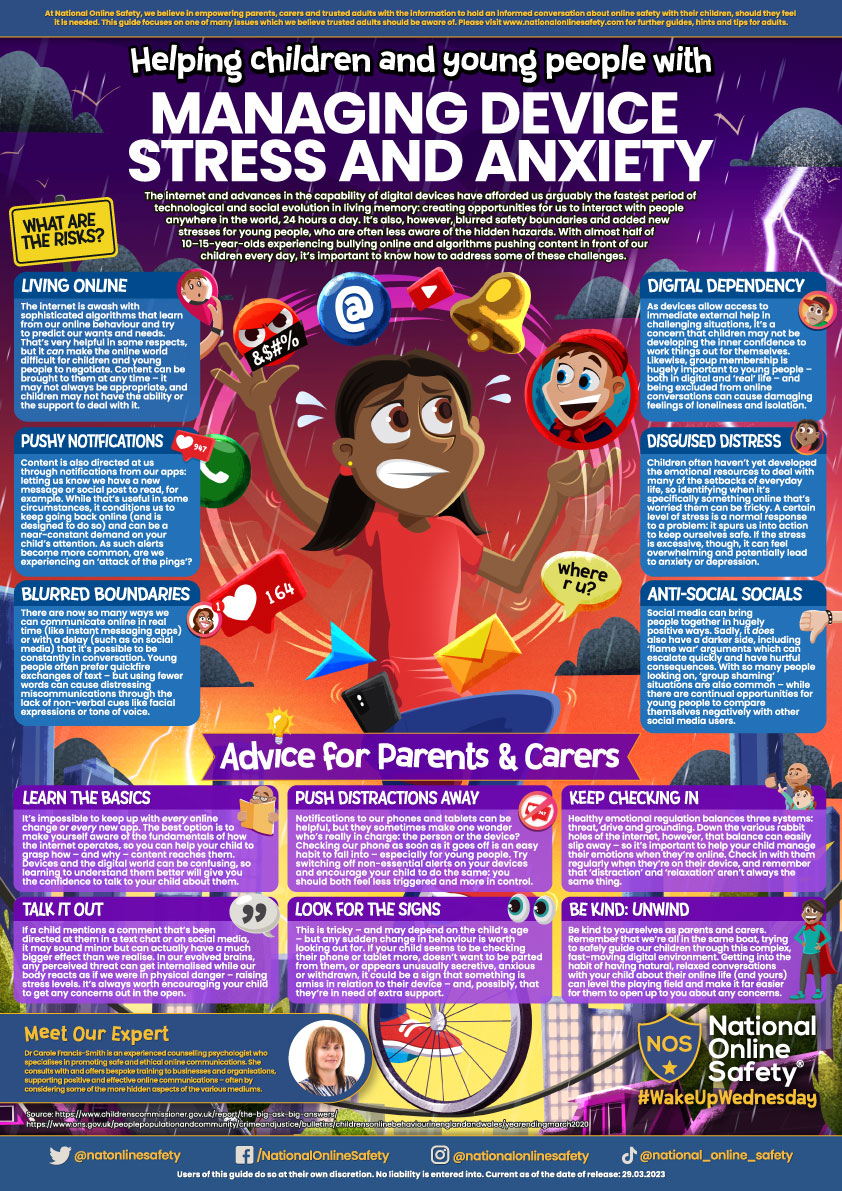With the school summer holidays only a matter of days away, many parents and carers will already be planning outings and activities to keep their young ones entertained. In between those special summer moments, though, there are also likely to be occasions when children happily invest a whole afternoon in Among Us or spend most of their Monday on Minecraft.
As young people’s screen time almost inevitably increases over the holidays, parents like to feel confident that their child will stay safe while they’re exploring the digital world. So we’ve produced a #WakeUpWednesday poster with some simple solutions to help children avoid frequent online pitfalls and enjoy a more positive experience when they go online this summer.
Read on to access your free guide…National Online Safety
This guide is from National Online Safety.




